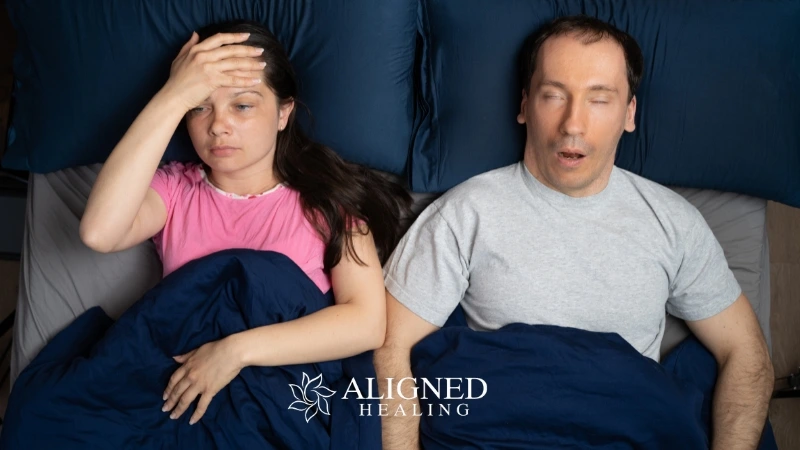A good night’s sleep is essential for overall health, yet millions of people struggle with sleep issues, ranging from mild disturbances to severe disorders like sleep apnea. One emerging approach to improving sleep quality is myofunctional therapy—a specialized form of therapy that focuses on strengthening the muscles of the mouth, tongue, and face.
Myofunctional therapy addresses the underlying causes of poor sleep, such as improper tongue posture, weak oral muscles, and disordered breathing patterns. By retraining these muscles, this therapy can lead to better breathing, reduced sleep disturbances, and a more restful night’s sleep.
In this article, we’ll explore what myofunctional therapy is, how it works, and its role in enhancing sleep quality and addressing conditions like sleep apnea.
What Is Myofunctional Therapy?
Myofunctional therapy involves a series of exercises designed to improve the strength, tone, and coordination of the muscles in the mouth, tongue, and face. These muscles play a crucial role in functions like breathing, chewing, swallowing, and speaking.
When these muscles are weak or improperly positioned, they can contribute to:
- Mouth breathing
- Snoring
- Tongue thrust (pushing the tongue against or between teeth while swallowing)
- Obstructive sleep apnea (OSA)
By correcting these dysfunctions, myofunctional therapy promotes healthier breathing patterns and improves airway stability during sleep.
The Connection Between Oral Muscles and Sleep
The position and function of the tongue, mouth, and throat muscles directly impact how well we breathe during sleep. Here’s why these muscles are so important:
1. Tongue Posture and Airway Support
The tongue plays a key role in maintaining an open airway during sleep. When the tongue is improperly positioned or lacks strength, it can fall back into the throat, partially or fully blocking the airway and leading to snoring or sleep apnea.
2. Mouth Breathing vs. Nasal Breathing
Mouth breathing, often caused by weak oral muscles or nasal obstructions, disrupts normal oxygen exchange and can lead to fragmented sleep. Myofunctional therapy helps retrain the muscles to support nasal breathing, which is more efficient and promotes deeper, more restorative sleep.
3. Muscle Tone and Airway Stability
Weak muscles in the mouth and throat are more prone to collapse during sleep, especially in individuals with obstructive sleep apnea. Strengthening these muscles can reduce airway collapsibility and improve breathing patterns.
Benefits of Myofunctional Therapy for Sleep Quality
Myofunctional therapy offers several benefits that can significantly improve sleep quality:
1. Reduced Snoring
Strengthening the oral muscles helps prevent the soft tissues in the throat from vibrating, which is the primary cause of snoring.
2. Improved Breathing Patterns
Retraining the tongue and mouth to support nasal breathing ensures a steady flow of oxygen throughout the night, promoting uninterrupted sleep.
3. Alleviation of Sleep Apnea Symptoms
For individuals with mild to moderate obstructive sleep apnea, myofunctional therapy can reduce the frequency and severity of apnea episodes by improving airway stability.
4. Enhanced Daytime Energy
By improving sleep quality, myofunctional therapy helps reduce daytime fatigue, enhancing overall energy levels and focus.
Who Can Benefit from Myofunctional Therapy?
Myofunctional therapy is beneficial for individuals of all ages, including both children and adults.
- Children: Early intervention can address mouth breathing, tongue thrust, and poor oral habits, preventing long-term sleep and orthodontic issues.
- Adults: Those suffering from snoring, mild to moderate sleep apnea, or disrupted sleep due to mouth breathing can find relief through therapy.
Myofunctional therapy is also an effective complement to other treatments, such as CPAP therapy or oral appliance therapy, for those with more severe sleep apnea.
What to Expect in Myofunctional Therapy
Myofunctional therapy typically involves working with a trained therapist who designs a personalized program of exercises tailored to your needs. Here’s what the process looks like:
1. Initial Assessment
The therapist evaluates your breathing patterns, tongue posture, and muscle function. This may involve observing how you swallow, speak, and rest your tongue.
2. Customized Exercise Plan
You’ll receive exercises to perform daily, focusing on strengthening specific muscles. Exercises may include:
- Tongue lifts and presses
- Lip strengthening routines
- Breathing drills to promote nasal breathing
3. Regular Follow-Ups
You’ll have periodic check-ins with your therapist to monitor progress, adjust exercises, and ensure you’re on track to meet your goals.
4. Integration into Daily Life
The goal is to make the new breathing and muscle patterns second nature, ensuring lasting benefits for your sleep and overall health.
Simple Myofunctional Exercises to Try at Home
Here are a few exercises you can practice to start strengthening your oral muscles and improving your breathing:
1. Tongue Press
- Place the tip of your tongue against the roof of your mouth, just behind your front teeth.
- Press the entire tongue flat against the roof of your mouth and hold for 10 seconds.
- Repeat 5-10 times daily.
2. Nasal Breathing Practice
- Sit or lie in a comfortable position.
- Inhale deeply through your nose, allowing your abdomen to expand.
- Exhale slowly through your nose.
- Practice for 5-10 minutes to promote nasal breathing and relaxation.
3. Lip Seal
- Close your lips gently and hold them together without clenching your jaw.
- Maintain this position for several minutes to strengthen lip muscles and encourage nasal breathing.
A Path to Restful Sleep
Myofunctional therapy is a powerful, non-invasive approach to improving sleep quality by addressing the root causes of disordered breathing and poor oral muscle function. Whether you’re dealing with snoring, sleep apnea, or simply feeling tired despite a full night’s rest, this therapy offers a natural solution to enhance your sleep and overall well-being.
By retraining your tongue, mouth, and facial muscles, you can enjoy deeper, more restorative sleep and wake up feeling refreshed and energized. If you’re ready to explore myofunctional therapy, contact us today at Aligned Healing.







